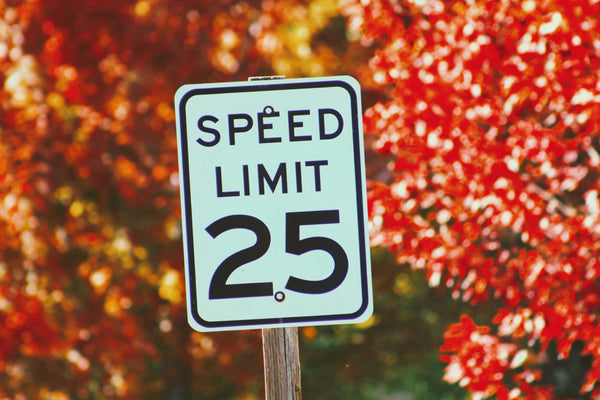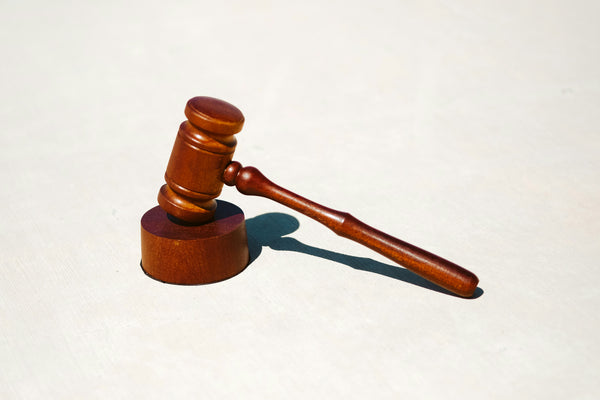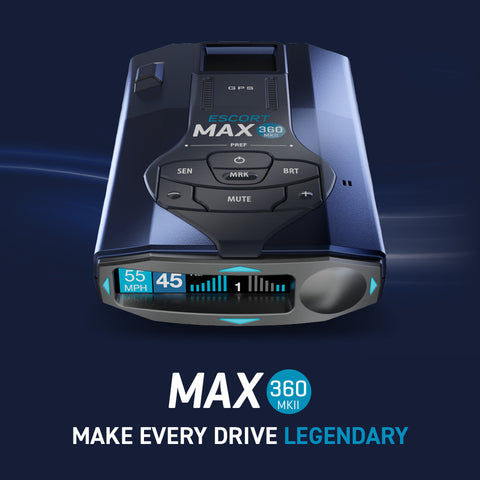How to Request Radar Gun Calibration Records
Learning how to request radar gun calibration records is a pivotal step in challenging a speeding ticket.
This article will guide you through the process of requesting radar gun calibration records, explaining the importance of these records and how they can be used to challenge the accuracy of a radar gun in court.
We'll cover everything from the basic understanding of how radar guns work to protecting your rights and the specific steps you can take to question a speeding ticket effectively.
To finish, we'll discuss the best radar detectors from Escort Radar.
Let's dive into the details.
What this article covers:- How to Request Radar Gun Calibration Records
- Can I Request Radar Calibration Records?
- How Radar Guns Work
- Protect Your Rights
- How to Question the Accuracy of Police Radar
- Step 2: Challenge the Radar in Court
- Tips
- Best Radar Detectors
How to Request Radar Gun Calibration Records
Strategies concerning how to beat a speeding ticket caught on radar starts with requesting these documents. If you've been ticketed and suspect a radar gun inaccurately assessed your vehicle's speed, you can request calibration records from the law enforcement agency involved.
Start by identifying the specific details of your case, like the date and location of the alleged offense, as well as the officer's name, if possible.
Submitting a formal request under the Freedom of Information Act (FOIA) or your state's equivalent can help you obtain these records.
It's important to keep a log of all interactions as you gather these documents.
Can I Request Radar Calibration Records?
Yes, you certainly can request radar calibration records, and we encourage you to do so if you believe there's been a mistake with your speeding ticket.
These records are usually part of the public record, although access can vary depending on your location's laws.
That said, be prepared to explain why you need the records. This might be as straightforward as challenging a speeding ticket. If your initial request is denied, don't be discouraged.

Remember, when it comes to how often do radar guns need to be calibrated, they should be calibrated every 30-60 days. Failure in this regard can help your case.
How Radar Guns Work
Radar guns measure vehicle speed using radio waves based on the Doppler effect—the change in frequency of the returned signal indicates how fast a vehicle is moving.
There are primarily two types of radar guns: stationary and moving.
Stationary radar guns measure the speed of objects moving towards or away from them, while moving radar guns can calculate the speed from a moving patrol vehicle.
Protect Your Rights
If you're headed to traffic court, it's essential to consult with a legal professional and prepare your case. Collect all pertinent evidence, including radar gun calibration records and any details on the officer's training with the device.
You'll need to be well-prepared to present this evidence logically and coherently in court to challenge the radar reading's accuracy.
How to Question the Accuracy of Police Radar
Based on our observations, challenging the accuracy of a police radar begins with educating yourself. Knowledge will come in handy when you're collecting evidence and arguing that a radar was not operated correctly or was improperly calibrated.
Here's how to get started.
Step 1: Gather Evidence
Your first step in questioning a radar-based speeding ticket is to gather as much evidence as possible.
Obtain the radar gun's calibration records and the officer's training documentation for the incident in question.
Document environmental conditions during the traffic stop, like weather, traffic, and potential obstructions or reflective surfaces that might have impacted the radar's accuracy.

Our findings show that external factors can sometimes skew the readings.
Requirements For Calibration Certificates
Calibration certificates should detail the calibration date, methods used, and results.
Certificates must be issued by a certified technician and should comply with manufacturer and state law recommendations for renewal.
Always check the certificates for any signs of discrepancies or annotations that might suggest problems with the radar unit.
Photocopies Of Calibration Certificates
Courts generally require original calibration certificates to prove authenticity. Photocopies are typically not acceptable in legal settings due to potential forgery concerns.
Step 2: Challenge the Radar in Court
When it's your turn in court, clearly articulate why you believe the radar reading was inaccurate.
Present any inconsistencies in the calibration records or potential lapses in the officer's training. Discussing the technical specifications and known faults of the radar model used in your case can bolster your argument.
Step 3: Make Your Argument To The Judge
In court, clarity and conciseness in your argument are paramount. Focus on any procedural errors and question the officer's comprehension and handling of the radar device during your incident.
It's important to maintain respect as you lay out your arguments, aiming to create reasonable doubt about the accuracy of the speed measurement.
Tips
The moment you receive a speeding ticket, begin gathering information and preparing your case. The earlier you start, the better prepared you'll be.
Keep thorough documentation of all your interactions and steps taken as you build your defense. Our research indicates that approaching your case calmly and professionally is key, even if the legal process might seem overwhelming at times.

Best Radar Detectors
At Escort Radar, we take pride in offering a range of high-quality radar detectors designed to help drivers maintain awareness of their speed and nearby radar enforcement. Each model is tailored to meet specific needs and conditions.
ESCORT Redline 360c
Our ESCORT Redline 360c is renowned for its extreme range and accuracy in detecting radar signals. This model provides comprehensive protection with minimal false alerts.
It features advanced filtering technologies and utilizes multiple radar antennas, which help detect signals from every direction. It also offers GPS-based features like red light and speed camera alerts, fostering awareness.
ESCORT MAXcam 360c
The ESCORT MAXcam 360c combines radar detection with an HD dash cam to capture comprehensive driving data. It provides 360-degree detection of radar and laser signals, covering you from all angles.
The built-in camera is invaluable for documenting road incidents, potentially aiding in legal matters. Plus, it features Wi-Fi connectivity for effortless updates and data management.
ESCORT MAX 360c MKII
The ESCORT MAX 360c MKIIis an upgraded version of our popular MAX 360c. This model is perfect for drivers who value precise, directional information about radar.
It features directional arrows that indicate the origin of the radar signal, AutoLearn technology to reduce false alerts from familiar routes, and compatibility with the ESCORT Live app, which provides real-time alerts from other users.
ESCORT MAX 360 MKII
Building on the foundation of its predecessor, the ESCORT MAX 360 MKII features dual-antenna front and rear detection, providing complete radar coverage.
The MKII version boasts improved signal processing for faster, more accurate responses.
Equipped with Bluetooth connectivity, it pairs seamlessly with the ESCORT Live community app, allowing access to a network of real-time radar alerts. Its rich OLED display provides detailed notifications and system information for easy user interaction.
ESCORT MAX 3
The ESCORT MAX 3 is an excellent choice, as it offers full 360-degree protection against radar and laser threats. This model is packed with essential features to support its performance.
It uses digital signal processing (DSP) for rapid response and speed detection, keeping you one step ahead. It's also compatible with the ESCORT Live app, enriching your driving experience with community-based alerts and updates.
Conclusion
In this guide, we walked through the detailed steps for requesting radar gun calibration records, understanding how radar guns work, and protecting your rights in traffic court.
We've explored everything from the initial request under the Freedom of Information Act to challenging the accuracy of police radar in court, complete with tips for gathering evidence and making your argument before a judge.
To avoid future tickets, Visit Escort Radar to find the perfect model for your driving needs.
If you want to learn more, why not check out these articles below:
- Where to Mount Radar Detector
- How Does Police Radar Know Which Car Is Speeding
- How Accurate Is Police Radar While Moving
- What Band Do Police Radars Use
- Can Police Radar You From Behind
- Are Radar Detectors Legal in Michigan
- Are Radar Detectors Legal in PA
- Are Radar Detectors Legal in South Carolina
- Are Radar Detectors Legal in Colorado
- Are Radar Detectors Legal in Washington State
- Are Radar Detectors Legal in Wisconsin
- Are Radar Detectors Legal in Iowa
- Are Radar Detectors Legal in Oregon
- Are Radar Detectors Legal in MA
- Are Radar Detectors Legal in CT
 |
| 



